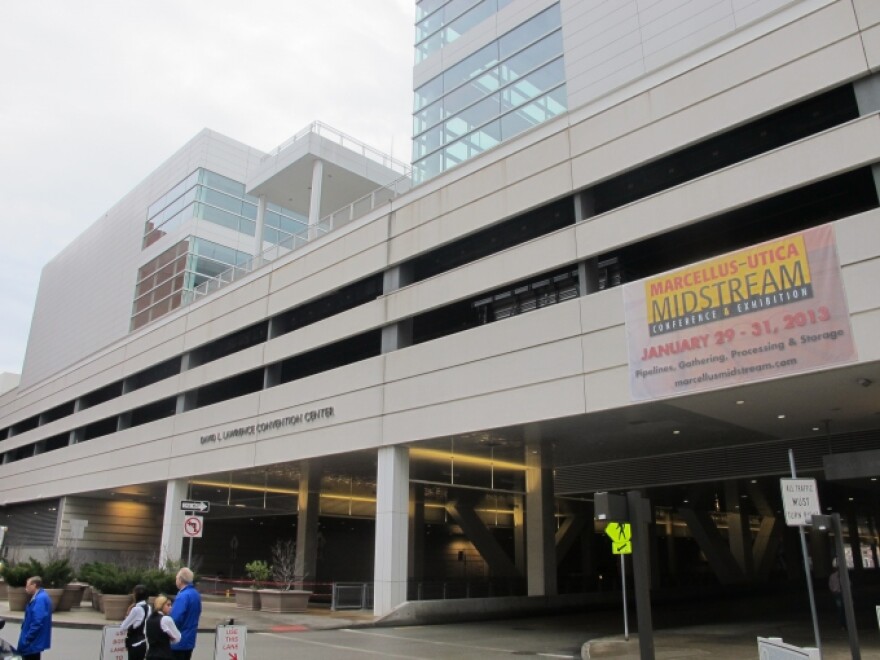As Pennsylvania Governor Tom Corbett reportedly held a campaign fundraiser with Marcellus Shale natural gas companies at the David Lawrence Convention Center on Wednesday, a few dozen protesters gathered outside to criticize Corbett's economic policies.
The activists from One Pittsburgh said the governor refused to put a tax on the gas companies while cutting state funding for education and human services.
In addition to a large inflatable rat, the dissidents brought out a red carpet "to symbolize Governor Corbett's willingness to step over the people of Pennsylvania in order to line his own pockets." The carpet was rolled out over several of the protesters.
Glenn Grayson, community organizer with One Pittsburgh, said he's protesting the governor's fundraiser in anticipation of an austere budget proposal on February 5, in which he expects the governor to push budget cuts and privatization initiatives. He said the privatization of state liquor stores would eliminate hundreds of well-paying union jobs, while he thinks the governor's plan to lease the state lottery system would hurt public programs for seniors.
"Millions of seniors are affected by that. In the Meals on Wheels [program], seniors get on free. Those are amenities that he says companies will honor still, but how do we hold them accountable if they're private?" said Grayson.
The British firm Camelot Global Services, the only company to bid for the state's lottery, has guaranteed higher revenues for the state. Camelot was required to create a $150 million insurance fund that can be tapped if lottery income comes up short, and the state has the right to terminate the contract if the insurance fund runs dry.
Grayson said One Pittsburgh wants a true tax put on Marcellus Shale gas companies, rather than the current "impact fee." He said the state should also close the so-called "Delaware Loophole," through which corporations operating in Pennsylvania can base their headquarters in Delaware to avoid Pennsylvania's higher corporate net income tax rates. He said those measures would earn the state enough income to avoid budget cuts and privatization projects.
"Why are we always the ones bearing the brunt of everything?" asked Grayson. "If corporations paid their fair share, we could have some more money in our state, which will help in taking care of a lot of these issues that we currently have."




